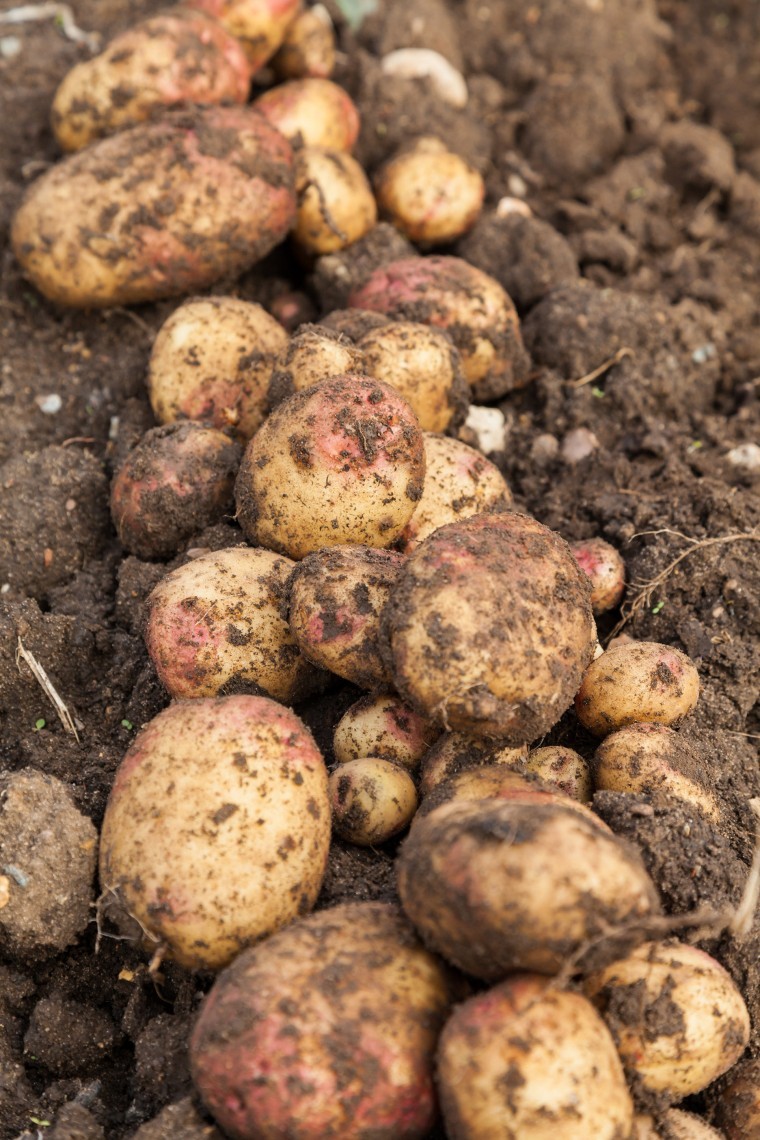Nearly all the estimated 30,000 tonne annual trade comes from the county, which was hit this season by Canary Islands inspectors enforcing tough standards.
Up to 1,500 tonnes of the trade has been turned back at the islands’ docks to be sent to other markets such as Spain.
The Potato Council’s head of seed and export, Rob Burns, explained that as the Canary Islands are technically outside the European Union for their plant health status, they can set their own tolerances for potato imports. “We were aware that there had been no rejections for Scotland where the soil tolerance is 0.5% – or a notional zero,” Mr Burns explained.
But potatoes grown in Scotland for the Canary Islands are grown on lighter land than in Essex, where the heavier soils produce an attractive finish on the King Edward crop. The potatoes are lifted in September and are exported to the Canaries from October or November until March. Ironically, many are eaten as chips or roast potatoes by the islands’ huge tourist trade. The islands’ population of 2.1 million grows by another nine million tourists each year and domestic potato production cannot keep up with the the high level of demand.
This season’s harvest in Essex was very wet. As well as the weather, no one knew what the Canary Islands’ soil tolerances were because no published information could be found. “We knew there was a tolerance somewhere, but we did not know what it was,” Mr Burns said.
Eventually, it turned out there was zero tolerance of adhering clumps of mud which the wet weather had stuck to the potatoes. “It wasn’t dust on the bags or dust on the tubers,” said Mr Burns.
Even after this season’s experince, Mr Burns said farmers face a dilemma. The heavier Essex soils produce a particularly fine skin finish on King Edwards, but this may have to be sacrificed to avoid the risk of exceeding the islands’ soil tolerances.
Management techniques such as brushing the tubers may help. “You can put brushes on the grading lines. But the trouble with that is that they can leave a bloom on the finish.”
At least, though, with this season’s experience, growers can plan for next season. To understand the reasons for the rejections and find ways to reduce them, DEFRA has been working through the British embassy in Madrid since before Christmas to build relationships with key personnel with MAGRAMA (the Spanish agriculture ministry), the authority which oversees import controls and enforcement on the islands.
“It’s imperative that rejection issues are swiftly resolved,” added Mr Burns. “This long standing trade arrangement is recognised as important to both the UK and Spain.”
DEFRA’s discussions with MAGRAMA have confirmed that the Canary Islands regulations are interpreted as a zero tolerance for soil on imported material. This is based on the Canary Islands order of 12 March 1987, which lays down plant health rules for the importation, exportation and transit of plants and plant products. “The interpretation of zero soil tolerance means that there can be no soil adhering to the potatoes,” said Mr Burns.
DEFRA has asked for further information from the Spanish authorities on how their regulations are being interpreted by the Canary Islands’ inspectors and is seeking clarification about disease tolerance levels following this seasons rejections. Plant health inspectors from the Animal and Plant Health Agency will update the current guidelines to include any additional detailed disease tolerance levels once these have been received from the Spanish authorities. UK exporters should consult as usual with their plant health inspectors for guidelines in advance of next season’s exports.
“It has been a frustrating time for our exporters appealing the rejection process, which is completely impractical,” said Mr Burns. A formal appeal in writing has to be submitted to MAGRAMA within one month of the rejection.
“However, the process is taking around six months and is currently unworkable for the purposes of any particular shipment.”
The UK head of National Plant Protection Organisation will also now receive formal notifications of rejections from the islands which were previously only sent to the exporter concerned.




